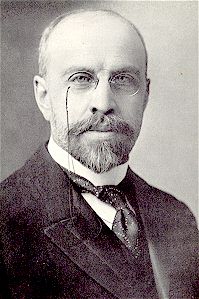 |
| James Martin Gray |
Blasts from the past occur almost weekly at the little church we sometimes attend. The hymnal looks new, but what's inside hearkens from the past, my past at least, which is, year by year, becoming more and more the ancient past. Of course, these days a hymnal itself is old hat.
Just about every week we're there we sing some creaky old hymn I haven't thought about for a half century. Last week it was "Only a Sinner."
Naught have I gotten but what I received;
Grace hath bestowed it since I have believed;
Boasting excluded, pride I abase;
I’m only a sinner, saved by grace!
Who writes like that today? Who thinks that way? The lyrics are little more than a standard exposition of traditional Calvinist doctrine--"I've done nothing to get everything." That's the story. Then the chorus.
Only a sinner, saved by grace!
This is my story, to God be the glory—
I’m only a sinner, saved by grace!
If you're my age and brought up in a church, your mind plays a recording it draws from some back room in your memory. Those words come out only in music, but you think about them maybe for the first time.
Do people talk that way anymore?--Christians I mean? The temperament of that old hymn is antique, isn't it?--an abject confession of my nothing in the face of God's everything. Is that a story anyone still tells?
Causing my footsteps from God to depart;
Jesus hath found me, happy my case;
I now am a sinner, saved by grace!
The story is not unique for its time, but you've got to a visit a museum (or a hymnal) to hear it today, maybe because its confession is so absolute: I was human offal until Jesus washed me in his blood.
It's the language of street temples, of revival, of being dragged through his blood, of His taking us in the nakedness of our sin and clothing us in bathrobes so brilliant they're blinding.
James Martin Gray wrote those words, the president of Moody Bible Institute for thirty years at the dawn of the 20th century; and he wrote it in the language of a sandwich board, downtown Chicago.
Mercy had saved me, or else I must die;
Sin had alarmed me fearing God’s face;
But now I’m a sinner saved by grace!
The ravages of sin are divinely transformed by Grace totally unmerited. That, President Gray would have said, is the great human story, which really isn't great and isn't human either, but gloriously divine.
So there I stood last week in that little church, haunted, remembering.
In Dana Gioia's poem "Cruising with the Beach Boys," yesterday's Writer's Almanac selection, Gioia is haunted by the memory of what some old Beach Boys ditty hauls with it when it plays on his car radio and steps out of his memory. Gioia's fine poem--I'm his age, of course--ends with a few lines that solidly identify the earnestness of the memories that return to him:
Can open up a door and let [those memories] fall
Tumbling like boxes from a dusty shelf,
Tightening my throat for no reason at all,
Bringing on tears shed only for myself.
The Beach Boys conjure intimations of mortality for Dana Gioia. I suppose there's something of that in those salvation-laden lyrics of "Only a Sinner." But part of what he feels is nostalgia, and I am not similarly taken by the cliff-hanging Christianity that was part of my childhood. I'm not nostalgic.
But I am amazed, more and more, by the sheer elasticity of the Christian faith--how wide and broad and unmeasured is its expanse, how much bigger it is than the skimpy limits of our own imagination or doctrine. The eternity of God includes sandwich boards and praise bands, rosaries and all kinds of iconography, the doleful measures of Genevan psalms and tub-thumping gospel awakenings. And probably even more--no, certainly more.
"Only a Sinner" is part of all that eternal story, slightly comic today, so woefully out of it.
But it's no less the truth. It's not wrong. Lord God a'mighty, what President Gray is teaching, the story he's telling in "Only a Sinner" is not somehow wrong. It's just part of the story.
No comments:
Post a Comment